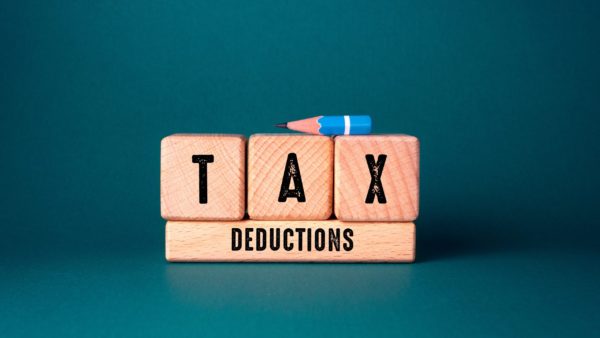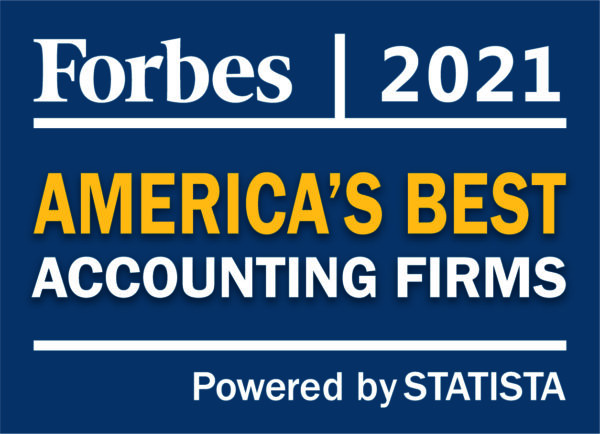
Appealing an IRS Decision
You have the right as a taxpayer to appeal an IRS decision in an independent forum. Learn more about your rights regarding IRS decision appeals.

You have the right as a taxpayer to appeal an IRS decision in an independent forum. Learn more about your rights regarding IRS decision appeals.

The holiday season is the most popular time for companies to offer gifts to their employees. Although, there may be other occasions that might be gift worthy too. What are some of the ways a business can build goodwill with its employees?

The Arizona Department of Revenue (ADOR) encourages taxpayers to keep well-organized records and to securely discard old documents.

Many homeowners sell their houses at a profit, which raises questions about taxation. Fortunately, the IRS gives breaks on these profits. Learn about the details that can save you a lot of money.

Additional benefits on top of an employee’s regular pay may be taxable. The rules are complicated and employers should familiarize themselves with the requirements. Do you know which benefits are taxable?

You should keep tax records for three years after you file a return, but there are times when you will need older files.

What are some common tax myths and facts about filing taxes? If you file a tax extension, do you still need to pay taxes owed? Are minor children required to pay taxes on income?

Tax years are based on annual accounting periods where you keep records and report income and expenses. A tax year may not be a calendar year. Discover the annual accounting periods you may or may not adopt.

How can you tell if a deal makes practical and financial sense? A short question with a complicated answer. Knowing the basics of when or if a deal makes practical and financial sense is helpful, but seeking help from a CPA to analyze the pros and cons is essential.

Recent guidance from the IRS highlights the nature of advertising costs. The tax law allows businesses to deduct expenses that help them bring in new customers and keep existing ones. What expenses can a business deduct?

The Infrastructure Investment and Jobs Act amended the law so that the Employee Retention Credit applies only to wages paid before October 1, 2021, in some cases. Recently, the IRS issued new guidance on how to manage this change.

As 2021 comes to a close, it is a good time to create a tax checklist for items needed to file individual and business taxes.

The American Opportunity Tax Credit and the Lifetime Learning Credit can offer tax savings for higher education. Tax savings may be available for you, your spouse, or your dependents taking postsecondary coursework.

The Supreme Court’s ruling in South Dakota v. Wayfair, Inc. changed the standard for when states need to collect sales tax from entities doing business in the state. Before the decision, states taxed only companies with a physical presence in the state, but they now tax all those with an economic presence.

The benefits of retirement programs, for both companies and employees, can be substantial, but the rules are complicated. You need to figure out how to help your employees while being compliant.

On March 17, 2021, the Treasury Department and IRS announced the federal income tax filing due date for individuals for the 2020 tax year will be automatically extended from April 15, 2021 to May 17, 2021. This extension does not apply to estimated tax payments that are due on April 15, 2021. As of today, tax returns for corporations, trusts, and Arizona state returns are due on April 15, 2021.

FDAP refers to certain income earned by some foreign persons in the U.S. It is subject to a withholding tax of up to 30 percent, although certain tax treaties offer a lower rate.

On January 6, 2021, the IRS and Treasury Department issued guidance allowing deductions for the payments of eligible expenses when such payments would result, or be expected to result, in the forgiveness of a covered loan under the Paycheck Protection Program (PPP).

Wallace Plese + Dreher has been awarded and recognized on the Forbes list of America’s Best Tax and Accounting Firms 2021. In total, 250 companies were awarded the title of America’s Best Tax Firm 2021 and 200 companies were awarded the title of America’s Best Accounting Firm 2021. Wallace Plese + Dreher was awarded titles in both accounting and tax.

It has been a challenging year, but one thing that has not changed is taxes. Fortunately, Arizona businesses can take advantage of certain tax deductions.

Americans with certain foreign financial assets have special tax reporting responsibilities. The Foreign Account Tax Compliance Act (FATCA) requires foreign financial institutions and certain other nonfinancial foreign entities report on the foreign assets held by their U.S. account holders or be subject to withholding on relevant payments.

After a year of turmoil and surprises, what will 2021 bring? One certainty is that the federal government is changing a variety of numbers affecting the finances of businesses and individuals.

Construction companies have an opportunity to save on taxes through Section 179. The deduction can help with the rising expense of labor in light of the skilled worker shortage and contribute to training employees.

Every year, under federal law, taxpayers must report certain foreign financial accounts to the Treasury Department. Whether the account produced taxable income has no effect on whether the account is a foreign financial account for FBAR purposes.

The 2017 TCJA changed rules for meals and entertainment. Recent IRS guidance may clear up some confusion and Arizona business owners should consult with their CPA to make sure they are not violating any rules or leaving money on the table.

The transaction privilege tax (TPT) electronic filing and paying threshold lowers to $500 beginning January 1, 2021. There will be penalties for not filing and paying electronically.

As more banks start accepting forgiveness applications, PPP borrowers need to know what to do to obtain maximum forgiveness, including required documentation for forgiveness application forms.

The IRS stated in a September 24, 2020 memorandum, it would treat September 15, 2020 returns and any elections filed on September 17, 2020, as timely if the September 15, 2020 filing was affected by a CCH e-filing system software outage.

The IRS reached a major milestone by accepting Form 1040-X, Amended U.S. Individual Income Tax Return, electronically. Now, taxpayers can correct tax returns with fewer errors and expedite processing.

The Arizona Department of Revenue (ADOR) reminds taxpayers and business owners to verify their mailing address when filing. ADOR recommends using a standardized address that is fully spelled out and uses the postal service standard abbreviations when filing electronically or registering online.

The IRS is experiencing delays in processing paper tax returns due to limited staffing. Taxpayers are strongly encouraged to file electronically through a CPA or accountant or tax software provider. Paper returns are processed in the order they are received.

Several tax credits and incentives, such as the qualified fuel cell motor vehicles and energy-efficient home improvements, are set to expire at the end of 2020.

In March 2020, due to COVID-19, the IRS automatically extended the filing deadline for tax returns from April 15 to July 15, 2020. The extension applied to all individual returns, trusts, and corporations. The Arizona tax filing deadline was also extended to July 15, 2020.

With many people working from home, you may think you can take a home office tax deduction. The Internal Revenue Code is complex and sets certain conditions on claiming a tax deduction. What deduction is allowable and under which circumstance?

COVID-19 caused many brick-and-mortar entities to strengthen or create their online presence, forcing them to address sales tax complexities they did not have to contend with when sales were local.

COVID-19 may have created tax complications for companies with employees working from home in another state. To prevent tax surprises for you and your employees, understanding how to classify wages will avoid penalties and amending tax filings.

The Internal Revenue Service issued guidance providing tax relief under the CARES Act for taxpayers with net operating losses, offering a six-month extension to file on carrybacks.

The April 15, 2020 deadline for filing and paying Arizona and federal income taxes for the 2019 calendar year is July 15, 2020. The Arizona due date for first quarter estimated tax payments has not changed and remains April 15, 2020.

April 15, 2020 is the deadline for taxpayers to claim tax credits on their 2019 individual income taxes for donations to qualifying charitable organizations (QCO), certified school tuition organizations (STOs), and public schools.

The CARES Act grants a payroll tax credit for employment taxes owed by certain eligible employers. Employers may be able to defer the employer portion of any Social Security taxes for the period beginning on March 27, 2020, and ending before January 1, 2021.

The Families First Coronavirus Response Act provides small and midsize employers refundable tax credits that reimburse them, dollar-for-dollar, for the cost of providing paid sick and family leave wages to their employees for leave related to COVID-19.

On March 20, 2020, the Arizona Department of Revenue (ADOR) announced it moved the deadline for filing and paying state income taxes from April 15 to July 15, 2020 following direction by Governor Doug Ducey.

On March 17, 2020, Treasury Secretary Steven Mnuchin announced that, while the due date for filing 2019 tax returns would not be postponed, the IRS would waive penalties and interest on tax payments for 90 days. The waiver only applies to individual taxpayers owing up to $1 million in taxes and corporations owing up to $10 million in taxes.

The IRS is launching a new identity protection program that prevents anyone who has stolen your Social Security number from using it to file a fraudulent tax return. How does it work? Are you eligible for the program?

The Arizona Department of Revenue (ADOR) issued several key reminders for 2019 tax year filings. The individual income tax filing season for state and federal returns opens on Monday, January 27, 2020.

The Arizona Department of Revenue (ADOR) is completing system modifications to start accepting electronically filed corporate returns starting in January 2020.

The IRS made inflation adjustments for various 2020 tax items and they will apply to a wide range of taxpayers. A few examples that may impact you are included in this article.

President Trump signed the SECURE Act of 2019 as part of the government’s spending bill and Congress is planning to enact a number of changes that will significantly affect the retirement landscape. The SECURE Act encourages employers to offer retirement plans that were considered too expensive to administer and allows small employers to set up and offer 401(k) plans.

It took until May 27, 2019, but Arizona made some significant changes for the 2019 tax year to conform to the Tax Cuts and Jobs Act (TCJA). Outlined are the major changes impacting individuals and businesses.

Since deferring income into another year is no longer an option, retirement contributions are a great way to reduce adjusted gross income (AGI). Some options include IRAs and retirement savings to lower taxes. Outlined are options for maximizing retirement savings.